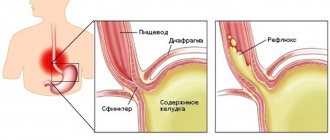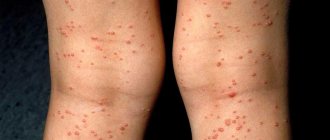Doctors are often contacted with a complaint of a salty or fishy taste in the mouth.
In some cases, this circumstance is not associated with the disease, but nevertheless worsens a person’s quality of life, since appetite decreases and it becomes impossible to enjoy food.
But most often this condition is provoked by various diseases .
Therefore, in any case, if you have a fishy taste in your mouth for no apparent reason, you should see a doctor.
Why does it occur: causes of the symptom?
Stay up to date! If a person did not eat seafood or consume fish oil the day before, then the taste of raw fish in the mouth can be caused by a number of factors, such as:
- Kidney failure.
- Inflammatory process in the salivary glands. Under the influence of bacteria or viruses, inflammation leads to a change in the chemical composition of saliva.
- Insufficient intake of fluid into the body , while dry mouth is added to the fishy taste. As a result of dehydration, a person loses beneficial vitamins and minerals. Often this problem occurs due to improper use of medications - diuretics.
- During cancer treatment, radiation and chemotherapy can affect taste buds. Therefore, the taste of fish or other substances in the mouth is not excluded. In particular, such side effects are caused by the drugs Methotrexate and Vincristine.
- Tears entering the nasopharynx.
- Sinusitis, rhinitis or allergies - mucus can accumulate in the sinuses and oropharynx, which, flowing down the walls of the throat, gives a similar taste.
- Lack of oral hygiene. As a result, soft and hard deposits develop, and they are a favorable environment for the development of infection. Pathogenic bacteria begin to affect the oral mucosa, teeth, and salivary glands, which can also affect taste. If inflammatory processes in the oral cavity are started, they can become chronic. As a result, a person constantly feels a fishy taste in his mouth. Such pathologies include dental caries, gingivitis, periodontitis, tartar, gum fistula, and chronic tonsillitis.
- Taking medications that can affect the chemical composition of saliva. In particular, medications for the treatment of diseases of the stomach and thyroid gland have this effect. Sometimes topical iodine-based antiseptics can also lead to a fishy taste in the mouth, such as Lugol's drug. To get rid of the unpleasant taste, just stop using this product.
- Smoking.
- Diseases associated with disruption of the nervous system .
Note! Quite rarely, a fishy taste develops due to an extremely rare disease - trimethylaminuria.
This is a congenital disease that develops against the background of liver pathology. But this phenomenon is extremely rare, and often a fishy taste in the mouth appears due to the above reasons.
What are the dangers of fish intoxication?
- Poisoning from smoked, dried, salted, fried or raw fish often disrupts the functioning of organs and systems. A product contaminated with toxins can cause infectious-toxic shock.
- Due to bacterial intoxication, consciousness is often impaired, tachycardia develops, and blood pressure decreases. In severe cases, the poisoned person may fall into a coma.
- Dehydration develops due to excessive vomiting and diarrhea. Lack of fluid can cause internal organ failure and death.
- Acute renal failure occurs against the background of toxic shock. In severe cases, respiratory arrest occurs.
- Under the influence of toxic elements, acute gastritis and inflammation of the pancreas (pancreatitis) appear.
Particularly severe poisoning is caused by poisonous fish, such as fugu. Just 1 ml of toxin contained in the body of a pufferfish can kill an adult within 15–30 minutes. Intoxication is characterized by numbness of the mouth and limbs, incessant vomiting, and dysfunction of the diaphragm. This is a very dangerous condition that can lead to death.
When eating spoiled mackerel, tuna, saury and other fish of the mackerel or mackerel family, scombrotoxicosis often develops. The disease is usually caused by bacteria that begin to multiply when stored improperly. Moreover, even subsequent heat treatment does not prevent the appearance of scombrotoxins.
Symptoms of poisoning in this case develop within an hour. A tingling sensation appears in the mouth, itching of the skin begins, a rash appears, and a severe headache. Symptoms include rapid heartbeat, sweating, dizziness, as well as nausea and diarrhea. Such signs make intoxication similar to an allergic reaction.
Botulism poses a very serious danger. Respiratory paralysis, leading to respiratory arrest and death, can occur within two days. The causative agent of the disease, botulinum, develops in the absence of air. Therefore, it is believed that canned fish, pates, and hermetically packaged products should cause the greatest caution. However, you should remember to take precautions even if you eat a freshly prepared fish dish.
The Clostridium botulinum bacillus can penetrate fish tissue through wounds, including when caught with hooked gear. Doctor Suleizhan claims that “botulism poisoning is usually associated with the consumption of large fish” (Suleizhan B.Zh., 2011, p. 66). In the thickness of the tissues of a large individual there is also no access to air.
Other symptoms
The presence of other symptoms along with the taste of fish in the mouth is due to the underlying disease.
You should know! When dehydrated, a person develops dry mouth and pale skin, general health worsens, and lethargy appears.
The accumulation of mucus in the nasopharynx develops due to infection, so all signs of inflammation develop - rhinitis, cough, general malaise.
Poor oral hygiene can lead not only to a fishy taste in the mouth, but also to other dental ailments - caries, gum inflammation , etc.
Infectious and inflammatory processes in the oral cavity cause , in addition to a fishy taste, a number of associated symptoms in the mouth:
- development of bleeding gums;
- tooth pain;
- plaque on the teeth and on the surface of the tongue;
- if there is a fistula in the gum, then pus is released from there;
- sore throat and coughing;
- expectoration of foul-smelling sputum, which often forms with chronic tonsillitis.
Diagnosis and which doctor to contact?
It is worth noting! If a person experiences the taste of fish in his mouth and those around him smell it, then this becomes a big psychological problem.
To avoid it and understand the causes of this condition, you should seek help from a doctor.
Initially, you can contact your dentist to rule out problems with the oral cavity.
If everything is fine with this, then plan your next visit to a therapist .
The doctor will conduct a general examination and, if necessary, refer you to specialists.
Diagnostic procedures may include the following research techniques:
- Abdominal ultrasound to identify gastrointestinal diseases and sinus ultrasound to rule out problems in this area;
- taking scrapings from the mouth ;
- donating blood for analysis;
- checking sputum for the presence of fungal infection;
- X-ray of lung tissue, nasal septum;
- in extreme cases, a biopsy is performed;
- immunogram;
- CT and MRI.
After receiving all the test results, the general practitioner will be able to decide which specialist to refer the patient to.
Depending on in which organ the problem of fishy taste in the oral cavity lies, the attending physician is determined who can eliminate the disease.
Keep in mind! This could be an endocrinologist, dentist, gastroenterologist, neurologist, otolaryngologist and other specialized specialists.
What to do if you are poisoned by fish
If you experience signs of poisoning after eating fish, such as severe diarrhea, you should consult a doctor. In case of any ailment, it is important to seek medical help in a timely manner to avoid negative consequences.
How to help in case of poisoning before doctors arrive? First of all, you need to try to remove the spoiled or toxic product from the stomach. To do this, you can provoke vomiting: drink two or three glasses of warm water with salt and press on the base of the tongue. After this, you can take a sorbent that will help remove toxins from the gastrointestinal tract and slow down their absorption into the blood. The most affordable products with a mild effect include “Fitomucil Sorbent Forte”. The drug consists of psyllium seed shells, probiotics and prebiotics. It has a gentle effect on the gastrointestinal tract and does not provoke pain or spasms.
In addition, frequent and abundant drinking will help remove toxins. Weak sweet tea, rosehip infusion, or plain boiled/filtered water will do. You need to drink in small portions, but often.
Treatment
You should not try to relieve symptoms on your own.
It is best to consult a doctor so as not to miss important calls, since any disease can be eliminated faster at its initial stage.
If you are sure that the taste of fish in your mouth is due to external influences, then you can take the following measures:
- In case of dehydration, normalize the water-salt balance . This is achieved by drinking plenty of water. It is recommended to drink up to 2 liters of liquid per day.
- If you experience a taste due to taking medications, you should inform your doctor. Then he will select analogues, but without adverse reactions.
- If your oral hygiene is poor you should first visit a dentist so that he can sanitize the source of the unpleasant odor. After this, the doctor will recommend to the patient how to keep his mouth clean.
- If a fishy taste in the mouth appears due to a cold, then treatment should be started as early as possible. Local antimicrobial agents such as Hexoral, Faringosept have a positive effect. If you have a severe cough, you need to start taking expectorants, such as Bronchicum, Doctor MOM syrups, etc. You can take medicinal infusions as an auxiliary therapy. If the inflammatory process is complicated or prolonged, you will have to take antibiotics.
For your information! Most often, when the underlying disease is treated and its manifestations are eliminated, the fishy taste in the mouth goes away on its own.
Signs of fish poisoning
Symptoms depend on what exactly caused the poisoning. Most often we talk about food poisoning, namely salmonella gastritis, gastroenteritis or gastroenterocolitis. As a result of bacteria entering inside, the mucous membranes of the stomach and intestines become inflamed, which leads to the acute onset of the disease.
The incubation period is most often 8-14 hours, less often - up to 2 days. A bacterial infection is characterized by an acute onset, the following symptoms appear:
- severe malaise;
- nausea;
- repeated vomiting;
- pain and cramping in the abdomen;
- frequent loose stools;
- increase in body temperature.
If the cause of intoxication is poisons contained in fish, the symptoms may be different. At an early stage, the clinical picture is similar to manifestations of food poisoning, but later other symptoms may be added to diarrhea and vomiting: numbness of the lips and tongue, metallic taste in the mouth, loss of coordination, body aches, speech defects, etc.
Botulinum is the most dangerous microbe that causes food poisoning. Its spores are found in the intestines of fish, so it is important to strictly follow the preparation and storage technology. The first signs of poisoning may appear within 6-36 hours. The following symptoms are typical for botulism:
- nausea and vomiting;
- fog and double vision associated with damage to the visual centers;
- swallowing disorders and characteristic hoarseness of the voice;
- drooping eyelids;
- dry mouth;
- difficulty breathing, which can lead to paralysis.
It is important to remember that the only way to treat botulism is by administering a special serum. If neurological symptoms appear, you should call an ambulance.
In case of chronic intoxication with products containing certain chemical components, the clinical picture may be blurred. Despite the absence of acute symptoms of poisoning, it is important to pay attention to the state of health if fatigue, headaches, weakness, excessive sweating, periodic stool disorders, etc. appear. It is also important to remember that, in addition to toxic infections, eating fish can be fraught with helminthiasis.
The latter less often manifest themselves in the form of suddenly developing acute symptoms, but helminths can be a source of long-term intoxication. And some make themselves felt within two days. For example, with ascariasis, signs develop in the period from 2 to 14 days after eating fish: skin rash, pain in muscles and joints, and enlarged lymph nodes are observed. Such symptoms can be mistaken for signs of mild intoxication, but it is also important to consult a doctor in this case.
The severity of symptoms and the choice of treatment method are influenced by the volume of fish eaten, individual characteristics (age and weight), as well as chronic diseases. Symptoms develop quickly, so the condition also depends on how much time has passed after eating the dish.









